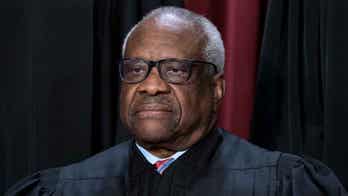The killing of Usama bin Laden by U.S. forces is likely weighing on the mind of another leader who many believe is also responsible for a deadly terrorist attack against Americans: Col. Muammar al-Qaddafi.
Qaddafi, who is suspected of ordering the bombing of Pan Am Flight 103 over Lockerbie Scotland that killed 270 people -- most of them Americans -- is currently fighting to preserve his 42-year dictatorship in Libya. NATO is leading an air war against his army in support of rebel forces, and on Saturday, a NATO missile strike killed Qaddafi's son and three of his grandchildren.
But a military stalemate continues and Qaddafi has vowed to never surrender.
Sunday's raid on bin Laden's hideout in Pakistan -- in which a small team of special forces dropped in by helicopter and shot the world's No. 1 Public Enemy in the head -- may give Qaddafi something more to think about, but foreign policy experts say it isn't likely to persuade the Libyan leader to back down.
"I think one needs to be very careful," said Anthony Cordesman, a Middle East expert at the Center for Strategic and International Studies and a former Defense and State official. "Qaddafi has been under attack twice. He lost a child. This is a message that is a lot more direct than the attack on bin Laden.
"Certainly every time America acts in this way, it's a warning to any authoritarian leader, particularly to a leader who does not have a solid power base. At this point, the message is a bit redundant."
Marc Ginsberg, who served as U.S. ambassador to Morroco in the Clinton administration, noted that the U.S. invasion of Iraq compelled Qaddafi to give up his weapons of mass destruction over fear that his country was next. But he said giving up power is another thing entirely.
"I think he is convinced the United States is determined to kill him or get him out of the country," he said. "But I don't think he's going to draw any more of a conclusion from what he had already come to believe independent of the attack on bin Laden."
Ginsberg said Qaddafi "clearly believes when NATO takes out a son and his grandchildren that the president has ordered an attack against him. From his perspective, NATO is nothing more than a facade that America is hiding behind to target him."
But Qaddafi isn't just facing a death threat. He's also facing an international trial for crimes against humanity. The International Criminal Court prosecutor said Wednesday that he will seek arrest warrants in the coming weeks against three Libyans who appear to bear "the greatest criminal responsibility" for crimes against humanity by Qaddafi's security forces.
But Libyan rebels want the U.S. to assassinate Qaddafi like bin Laden. A Libyan rebel spokesman Col. Ahmed Bani made the comments Monday as he praised the killing of Bin Laden.
"We are very happy and we are waiting for the next step," he said. "We want the Americans to do the same to Qaddafi."
But Cordesman said an assassination attempt on Qaddafi is highly unlikely.
"To strike at Qaddafi is perfectly legitimate," he said. "When it becomes a matter of deliberately killing one individual, you run into – aside from people who question the legal status – the problem of politics. You have lost sight of the objective. And the objective is not to punish anyone."
Ginsberg put it another way: "I don't think the president of the United States wants to have anyone pointing the finger at the White House for having ordered the assassination of a foreign leader."




